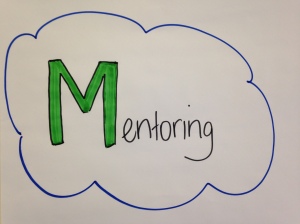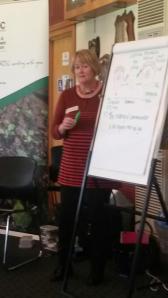Mentoring programs – key success factors
 What makes a mentoring program successful?
What makes a mentoring program successful?
Having been involved in mentoring programs as a facilitator and mentor I have been researching other programs to find out the key success factors.
My motivation for this .. we are about to embark on establishing a mentoring program as part of a rural women’s leadership program and are very keen to build a model that is robust and sustainable.
The mentoring program will be a formal one as opposed to informal. For my thoughts and definition of mentoring follow this link to a previous blog The power of mentoring
From my discussions and reading I have found the key success factors include
- Training for the mentors and mentees so everyone fully understands their roles and responsibilities. This should be carried out separately so mentors can develop knowledge of some mentoring frameworks and key skills such as communication skills, questioning, listening, feedback and being non judgemental.
- Guidelines, the how we will work together discussion is critical to success.
- Clear boundaries around the length of time the relationship will last and when it will be reviewed.
- Evaulation process – continual feedback
- Support for the mentors, this can take the form of a group mentor discussion so the mentors can learn from each other. One on one support is also important should challenges arise in a relationship.
- A mentee who is highly motivated, has a clear purpose and outcome they are looking for from the relationship. This could be a personal or professional goal, clarity is whats important.
- Matching mentors and mentees – there is some debate about the best way to do this. However an element of choice on both sides was highlighted as important. The program need to allow opportunity to get to know each other, one program used a speed dating and networking activities and then asked the mentees to nominate their top 3 choices. The mentor then chose which mentee they would like to work with.
- A strong sense of commitment to the process from both parties.
- An industry culture that recognises and values the benefit of mentoring
- Other ideas included a robust skills analysis for the mentors – they don’t always know what they are good at.
Thankyou to Jill Greenhaigh and Philippa Rawlinson from Lincoln University, Ruth Nettle from Melbourne University, Belinda Griffiths and Jenny O’Sullivan from Dairy Sage for their research and comments, past participants in our programs and past mentees for their insights for this blog and our future program.
If any readers have any thoughts about what would make a successful mentoring program we would love to hear your thoughts.
